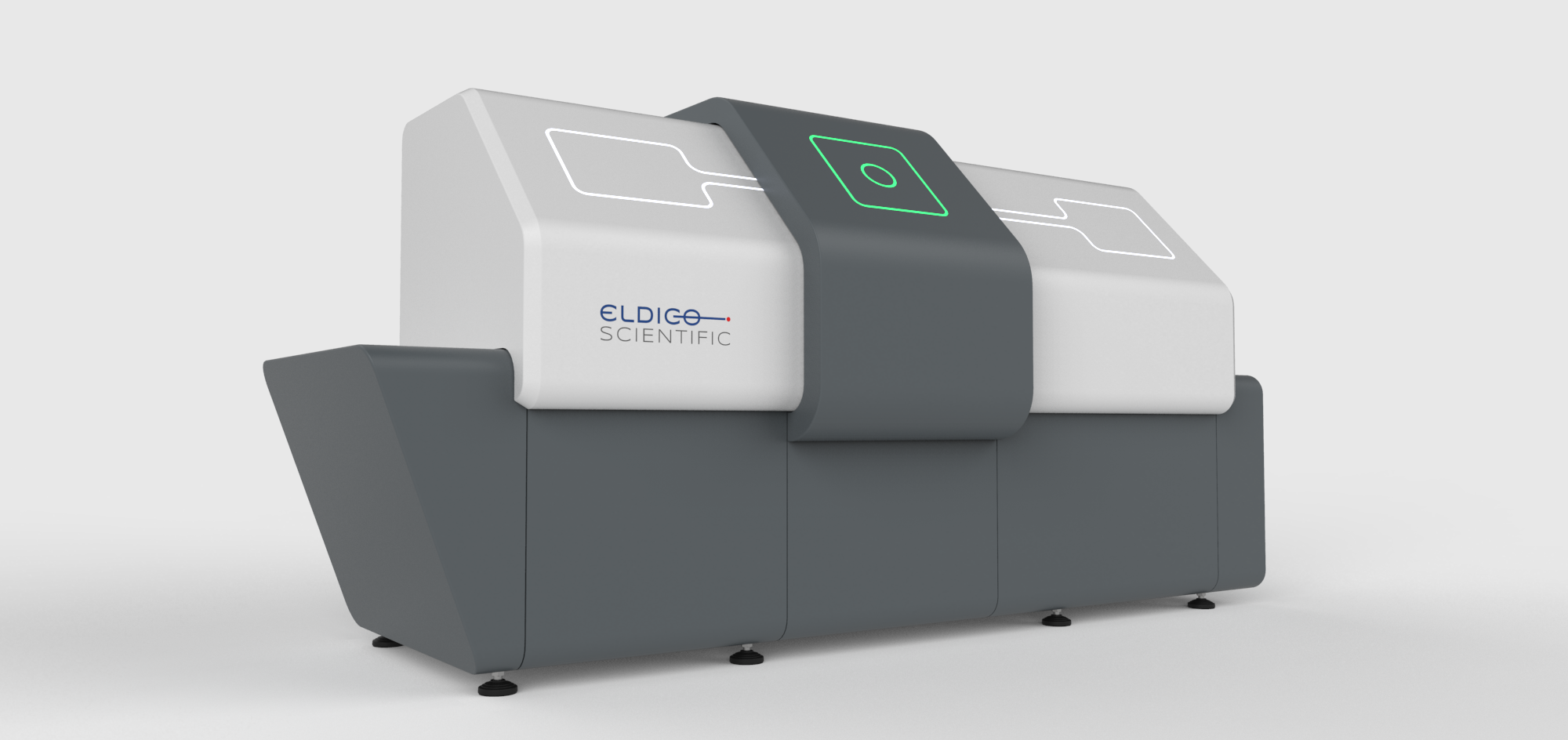The future of crystallography is here
Electron diffraction: the new gold standard to perform nano-analytical investigations
The Electron Diffractometer: a new instrument for crystal structure analysis
Every crystallographer knows: Crystallization is a tricky thing. Obtaining crystals large enough for X-ray diffraction experiments is not that easy. Such a task may require days, weeks, months or even years of efforts. In many cases, it is even impossible. This is why crystal growth is seen as the major bottleneck in many fields of industrial and academic solid-state research, which relies on X-ray diffraction experiments for the structure determination of its compounds.
Now another approach is on the rise: electron diffraction, which is gaining incredible momentum. During the past two years, every relevant congress or conference dedicated to crystallography, chemistry, material sciences, geology, structural biology and many other areas has featured sessions, keynotes and lectures that address the topic of electron diffraction. The number of scientific publications and crystal structures produced using this technique is also increasing rapidly.
Electron diffraction: A very promising technique becoming widely available
The reason is simple: Present diffraction methods are only applicable to samples of sub-millimeter sizes. Electron diffraction overcomes this limitation and allows investigations on nano-crystalline systems down to 1 million times smaller in volume. For example, in drug discovery alone, hundreds of thousands of known but not fully characterized crystalline compounds could be rapidly screened for their scientific or commercial potential. This also applies to many other fields, such as MOFs, zeolites, minerals, and natural products. Big pharma companies could expect to save up to six months in development of a single drug candidate if crystallization was not an issue anymore.
With the dedicated Electron Diffractometer from ELDICO Scientific, crystallization problems can be easily overcome.
On nano-crystallography
With Dr. Mauro Gemmi, Director at the Center for Nanotechnology Innovation@NEST

The continued development and application of electron diffraction is particularly important, because it enables structural analysis of individual crystals that are too small to be measured by X-ray diffraction.


With a dedicated device for electron diffraction, a lot of new possibilities would open. I see new possibilities in materials science, I see possibilities in pharmacology, in organic chemistry. I see incredible possibilities in the fields where what is critical is the size of the crystal.


Over the past decades, electron diffraction has been a regular tool during our analyses of inorganic materials. ED instruments with proper, i.e. more tailored functionalities are required to adequately address the requirements of the crystallographic structure analysis community.


Determination of the absolute configuration of organic molecules is essential in drug development and the subsequent approval process. This determination is possible through electron diffraction using nanocrystalline material.


There are many diverse applications for electron diffraction in materials science and chemistry. Heterogeneous catalysts need to be very small to enlarge the relative surface. The grains are too small for X-ray crystallography, whereas ED permits to determine their crystal structure at the original size.



The new gold standard in nano-analytics
The dedicated electron diffractometer is here to stay
ELDICO Scientific is addressing the availability of sufficiently large crystals as one of the main (and well-known) bottlenecks in crystallography. That is precisely why we see the enormous potential for electron diffraction, where the crystal size stops being an issue in crystallographic research.
Up to now there was no dedicated instrument available, optimised for electron diffraction applications. That’s why we are proudly introducing the first of its kind.
The ELDICO Scientific Electron Diffractometer is designed to measure samples of organic and inorganic compounds in the nanometer range and is targeted to achieve in the majority of cases a resolution of up to 0.84 Å with at least 60-70% complete datasets having an Rint <20%. Those data will typically allow for structure solution and refinement down to R1 values <10% in 75% of cases. Unit cell determination can be accurate to 1: 1‘000.
This is what we call the future of crystallography.
Is electron diffraction cost-efficient? Absolutely
ELDICO Scientific
A Swiss technology company on a mission
ELDICO Scientific (The Electron Diffraction Company) is a Swiss technology company founded in 2019. ELDICO develops, produces and sells solutions based on electron diffractometers for the analysis of solid compounds enabling industrial and scientific researchers to characterise hitherto unmeasurable nano-crystalline samples.
ELDICO's solutions, based on a dedicated electron diffractometer, allow the analysis of nano-sized solid compounds in a faster, more reliable, and significantly more user-friendly manner, than any other methodology applied today. It beats the common “retrofitted” electron microscopes in terms of quality, time and cost.
Numerous user groups from academia and industry worldwide show a keen interest in the methodology itself as well as in our instrument. Contact us to be among the first to obtain this breakthrough instrumentation.
Want to learn more about electron diffraction? Check our scientific papers
ELDICO is supported by world leading industrial and scientific partners
ELDICO launches the first electron diffractometer specially designed for nano-crystallographic research. Suppliers and development partners from five countries are contributed to the project, including the German companies Axilon and SmarAct, and the world's leading manufacturer of 2D detectors in Switzerland, Dectris (Baden, CH). Leading research institutions such as Paul Scherer Institute PSI, the largest research institute for natural and engineering sciences within Switzerland as well as an Scientific Advisory Board made up of the world's most renowned pioneers in electron diffraction support the concept of a dedicated electron diffractometer.




See it for yourself!
Send in your crystal sample and discover the superior capabilities of nano-crystallography on ELDICO dedicated electron diffractometer.
Submit sampleAbout Us
ELDICO Scientific AG (The Electron Diffraction Company) is a Swiss technology and service company founded in 2019 and based in the Switzerland Innovation Park Innovaare at the Paul Scherrer Institute (PSI), a world-leading research institute for natural sciences and engineering. ELDICO develops, manufactures and commercializes electron diffractometers , i.e. novel analytical instruments for electron based crystallography, enabling to investigate nano-crystalline samples. ELDICO will launch the first instrument specifically designed for nano-crystallographic investigations. Proof-of-concept was achieved in 2018 (ETH Zurich, C-CINA Basel) as part of a Nano-Argovia project of the Swiss Nanoscience Institute (SNI). It was published in 2018 and awarded Top 5 "Breakthrough of the Year 2018" by the leading science magazine SCIENCE. In 2020 among other public recognitions on Swiss and EU level, ELDICO took 2nd place in the prestigious Pioneer Prize awarded by Technopark Zurich and the Zürcher Kantonalbank (ZKB). ELDICO’s clients are industrial and academic researchers in large and fast growing industries such as the pharmaceutical industry, the electromobility, and the advanced materials / MOF sector. The company partners with leading engineering companies and component suppliers among Dectris, Excillum and SmarAct to deliver superior performance. www.eldico-scientific.com

.jpg?width=740&height=416&name=ELDICO-Scientific-team-foto%20(4).jpg)


